5 Signs you need you quit your job
What are some of the impacts of being in the wrong job?
Work experience really isn’t everything, especially when you consider your current job could be slowly killing you – literally.
Working as a software engineer, developer, designer, data scientist or the like in a tech-heavy industry means you're probably working more than the traditional 40 hours a week. You might have odd hours and likely spend way more than a third of your life at work.
All that time in a toxic work environment can take a heavy toll. A lack of a work-life balance has serious health implications, both mental and physical.
Don’t think you can plow through a rough time now and be OK later, either. A study by researchers at Ohio State University found job satisfaction in your late 20s and 30s is linked to overall health in your early 40s. People who weren’t happy early in their careers were more worried and depressed later in life, plus had more trouble sleeping. Job happiness has the most significant impact on midlife mental health.
It’s never too late to consider a job search for your dream job, especially when your next move may determine your future health. You shouldn’t stay at a job just because it provides security. If you’re experiencing any of the following five warning signs, it’s time to change something at work or give your two week’s notice to get a new job altogether.
1. You’re Having Trouble Sleeping
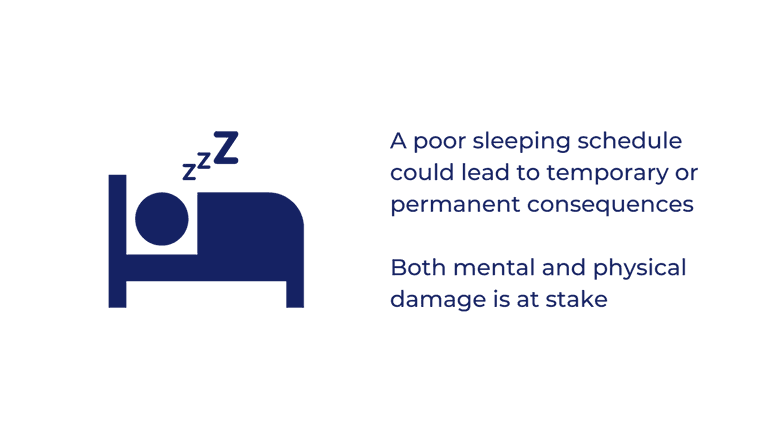
Red flag #1: Job stress can cause sleep problems. You may have trouble falling asleep or staying asleep because of work anxiety. Poor sleep can lead to an increased risk of chronic disease and medical conditions, according to the Division of Sleep Medicine at Harvard Medical School. These include:
- Obesity
- Diabetes
- Heart disease and hypertension
- Mood disorders
- Immune function
- Alcohol abuse
- Lower life expectancy
If you’re forced to work random hours each week in your current role, maybe because you’re getting woken up when you’re on-call, that can also damage your sleeping patterns and cause insomnia. Rotational shiftwork especially puts workers at a higher risk for disease, Occupational Health & Safety reports.
The publication reports circadian disruption is a probable carcinogen, increasing breast cancer risk for females and prostate cancer in males. It can also lead to a higher risk of obesity, diabetes, and cardiovascular disease.
If you’re working rotating shifts, know the risk that poses to your health. If you are having trouble sleeping as a result, there’s already a problem. Ask to get on a steady schedule, or cite a non-negotiable rotating shift as an answer to why you quit your job.
2. Your Heart Races Around Co-Workers (Not in a Good Way)
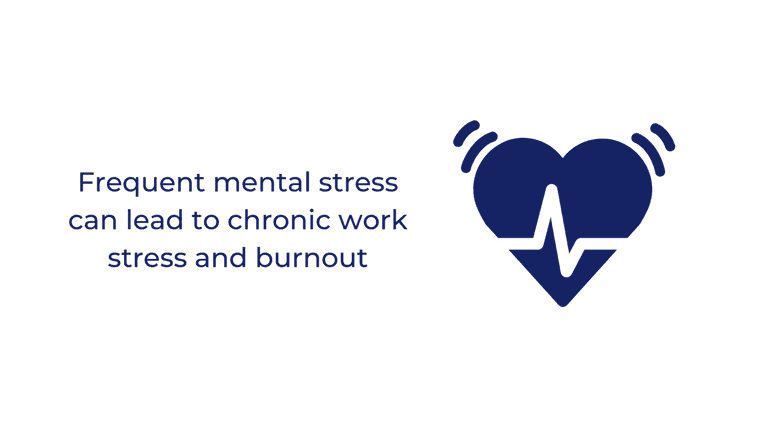
A faster heartbeat, quickened breath, and muscle tension are physical signs that you’re mentally stressed. Those are fight-or-flight symptoms.
If you’re experiencing these feelings every day, you’re likely experiencing chronic work stress. That can lead to a psychological syndrome known as burnout, according to Harvard Health Publishing.
Burnout is associated with higher rates of depression and anxiety, which can lead to major depressive disorder and generalized anxiety disorder. Feeling the flight-or-fight response regularly can increase disease risk. The immune system is disturbed, which increases the risk of Alzheimer’s disease, cardiovascular disease, and autoimmune disorders.
It’s normal to feel periodic nervousness or stress, like when you have to speak at length in front of co-workers. But if most interactions with your manager and/or peers get your heart racing, you might consider if now is the time to quit your job.
3. You’re Not Engaged at Work
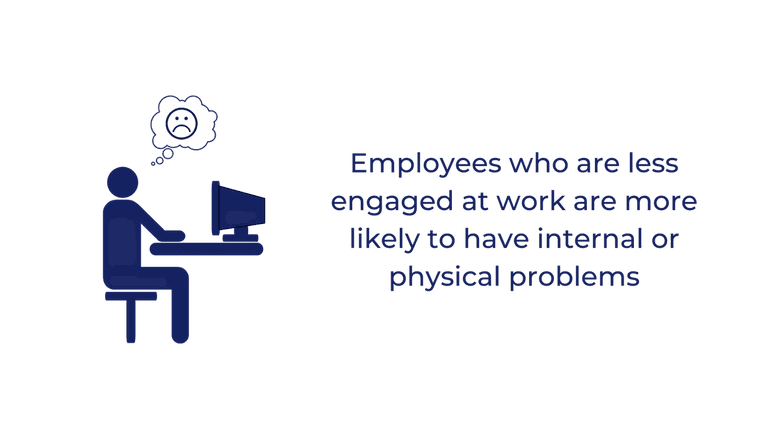
A feeling of engagement at work means you’re committed to and passionate about your job. According to Gallup, actively disengaged employees are more likely to encounter the following compared to engaged employees:
- Experience physical pain
- Experience stress
- Be diagnosed with high blood pressure
- Be diagnosed with high cholesterol
- Be diagnosed with depression
- Be obese
Disengaged employees are also more likely to report “unhealthy days,” which are days where health issues limit activity. A study published by “Psychosomatic Medicine” also found job strain is associated with a 45% increased risk of developing Type 2 diabetes.
If you’re not engaged at work, pinpoint the cause. If it’s the work itself, see if you can move to a new role. If it’s a managerial issue, maybe it’s time to switch positions or talk to a higher-up about how you’re feeling. If it’s the company culture and work environment, it may be time to move on for your health’s sake.
4. You’re Experiencing Back Pain, Neck Pain, and/or Body Aches
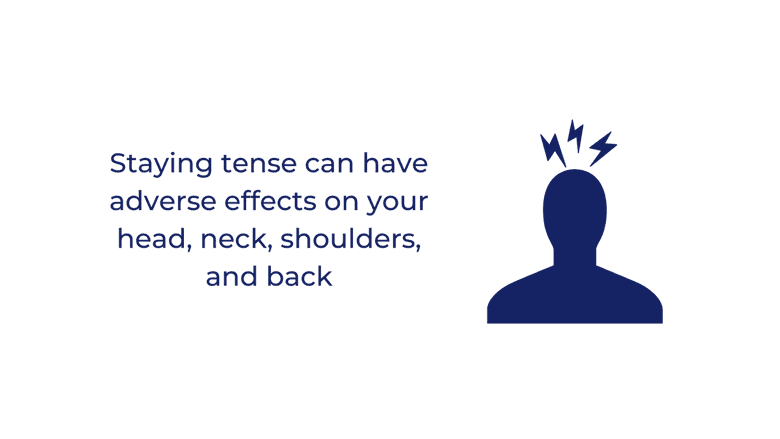
Work stress that keeps muscles tense can lead to musculoskeletal pain in the upper extremities and low back, according to the American Psychological Association. It also can cause chronic tension in the head, neck, and shoulders. This consistent pain can lead to tension and migraine headaches that negatively impact your personal life, too.
Also, when you’re feeling threatened because of work, stress hormones like adrenaline and cortisol can overwhelm you over time and cause muscle ache.
Overexposure to stress hormones disrupts all of the body’s processes, according to Mayo Clinic. This can lead to health issues like digestive problems and heart disease.
5. There are no opportunities for advancement
If you have tried, and failed, to advance multiple times in your current job, consider if this is the right company or career path. Many times, even the most talented people could have trouble thriving in certain environments but excel in others.
Where we work and how satisfied we are has a major impact on our lives - both in terms of health and overall happiness. Don't sell yourself short, if you experience any of these red flags, it's time to move!
Learn How to Quit Like a Pro
If you’ve come to the conclusion that your job is making you sick, check out our quit guide. It’s full of career advice for switching jobs, including what to say and how to craft a resignation letter.
The information provided herein is for general informational purposes only and is not intended to provide tax, legal, or investment advice and should not be construed as an offer to sell, a solicitation of an offer to buy, or a recommendation of any security by Candor, its employees and affiliates, or any third-party. Any expressions of opinion or assumptions are for illustrative purposes only and are subject to change without notice. Past performance is not a guarantee of future results and the opinions presented herein should not be viewed as an indicator of future performance. Investing in securities involves risk. Loss of principal is possible.
Third-party data has been obtained from sources we believe to be reliable; however, its accuracy, completeness, or reliability cannot be guaranteed. Candor does not receive compensation to promote or discuss any particular Company; however, Candor, its employees and affiliates, and/or its clients may hold positions in securities of the Companies discussed.
